Search
Remove Ads
Advertisement
Summary 
Loading AI-generated summary based on World History Encyclopedia articles ...
Search Results
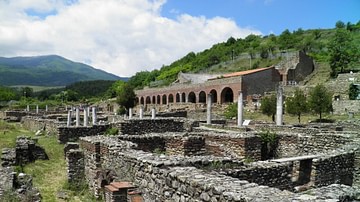
Definition
Herakleia Lynkestis
Herakleia Lynkestis (Heraclea Lyncestis; Ἡράκλεια Λυγκηστίς) was a city in the ancient kingdom of Macedon not far from modern Bitola, founded c. 358 BCE by Philip II of Macedon (r. 359-336 BCE) as a governing centre for his new expansions...

Image
Herakleia Lynkestis
Herakleia Lynkestis (Heraclea Lyncestis), Republic of Macedonia.
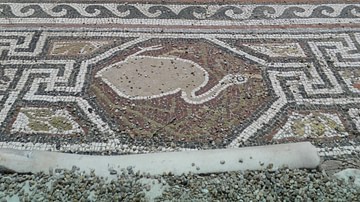
Image
Mosaic Floor at Herakleia Lynkestis
Mosaic floor of the Great Basilica at Herakleia Lynkestis, Macedonia, 5th-6th century.
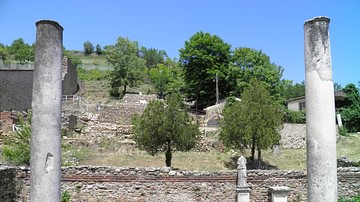
Image
Magistrate House, Herakleia Lynkestis
Remains of the magistrate house, including a statue of Nemesis, at Herakleia Lynkestis, Macedonia.

Video
The archaeological site and museum of Heraklia Lynkestis near Bitola, North Macedonia
Heraklia Lynkestis is the archaeological site of an ancient city of the same name near Bitola in North Macedonia. The city was founded by Philip II of Macedon in c. 385 BC as a citadel to monitor any possible invasions from Illyria and secure...
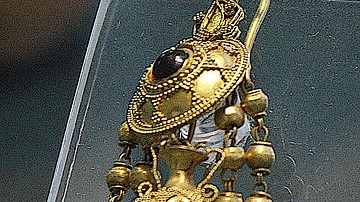
Image
Gold Filigree Earring, Herakleia
Gold and glass paste pendant earring with filigree and granulation. Acropolis, Herakleia, southern Italy. 1st century BCE. (Archaeological Museum of Siritide, Policoro, Italy)
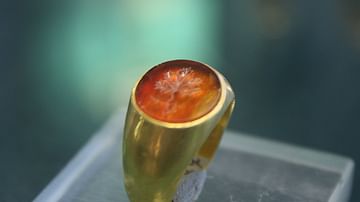
Image
Gold & Carnelian Ring, Herakleia
A gold and carnelian ring with leaf of life carving. Acropolis, Herakleia, southern Italy. 1st century BCE. (Archaeological Museum of Siritide, Policoro, Italy)
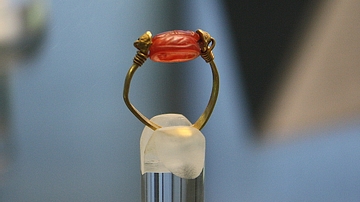
Image
Gold Bezel Ring, Herakleia
Gold ring with carved red bezel. Tomb 1251, western necropolis, Herakleia, southern Italy. 1st century BCE. (Archaeological Museum of Siritide, Policoro, Italy)
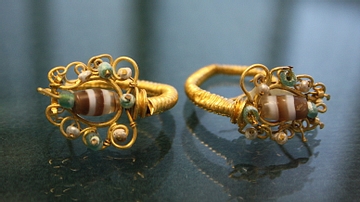
Image
Gold & Glass Paste Earrings, Herakleia
Gold and glass paste earrings. Acropolis of Herakleia, southern Italy. 1st century BCE. (Archaeological Museum of Siritide, Policoro, Italy)
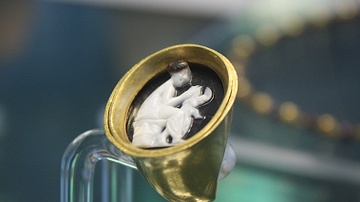
Image
Gold Cameo Ring, Herakleia
A gold cameo ring depicting Aphrodite and Eros. Acropolis of Herakleia, southern Italy. 1st century BCE. (Archaeological Museum of Siritide, Policoro, Italy)